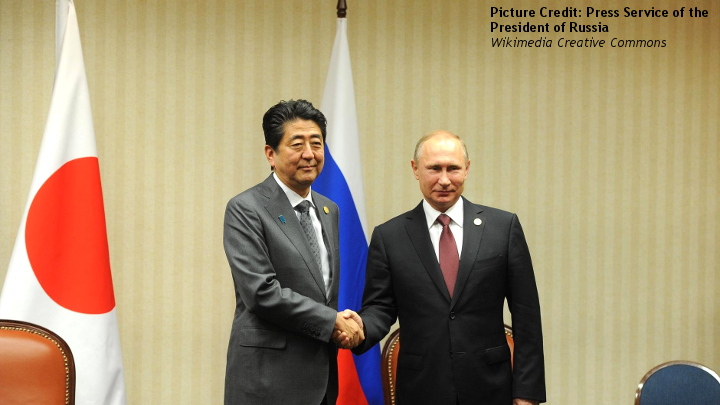Japan’s Opaque Energy Policy toward Russia: Is Abe Being Trumped by Putin?

Shoichi Itoh
EXECUTIVE SUMMARY
Prime Minister Shinzo Abe, with his self-proclaimed deep trust in President Vladimir Putin, has made striking a historic deal on improving Japan-Russia relations a priority. The Abe administration’s economic cooperation proposals prioritize the energy sector as an area to capture Moscow’s interest, despite difficulties identifying economically viable gas and oil projects. Russia aims to consolidate and strengthen its LNG export capacity against emerging competition with the U.S., and Tokyo has pursued policies that essentially underpin this ambition, despite the importance of U.S.-Japan cooperation on LNG to Japan’s long-term interests and energy security.
- The Abe administration needs to realize that only power politics will draw Moscow’s serious attention to improving Japan-Russia relations. Tokyo’s appeasement policy reflects wishful thinking on the outcomes of economic cooperation and will likely be exploited by Putin to further destabilize the West without offering tangible benefits in return to Japan.
- Japan should stop politically covering up the difficulty of identifying economically viable gas and oil projects in Russia, given that they would not bolster Japan’s energy security or weaken the Sino-Russian partnership.
- The U.S. and Japan should accelerate efforts to jointly shape the expansion of the global LNG market and increase further market opportunities for U.S. LNG exports. A thorough review of Japan’s energy policy toward Russia should be undertaken to ensure that it does not damage this strategic objective.
Find the full article at the National Bureau for Asian Research.
Related Publications
-
ISDP Annual Report 2023
ISDP’s Annual Report for the year 2023. We look back on 2023, a year in which tensions and conflicts captured the strategic space in ISDP’s focus areas, making headlines around […]
